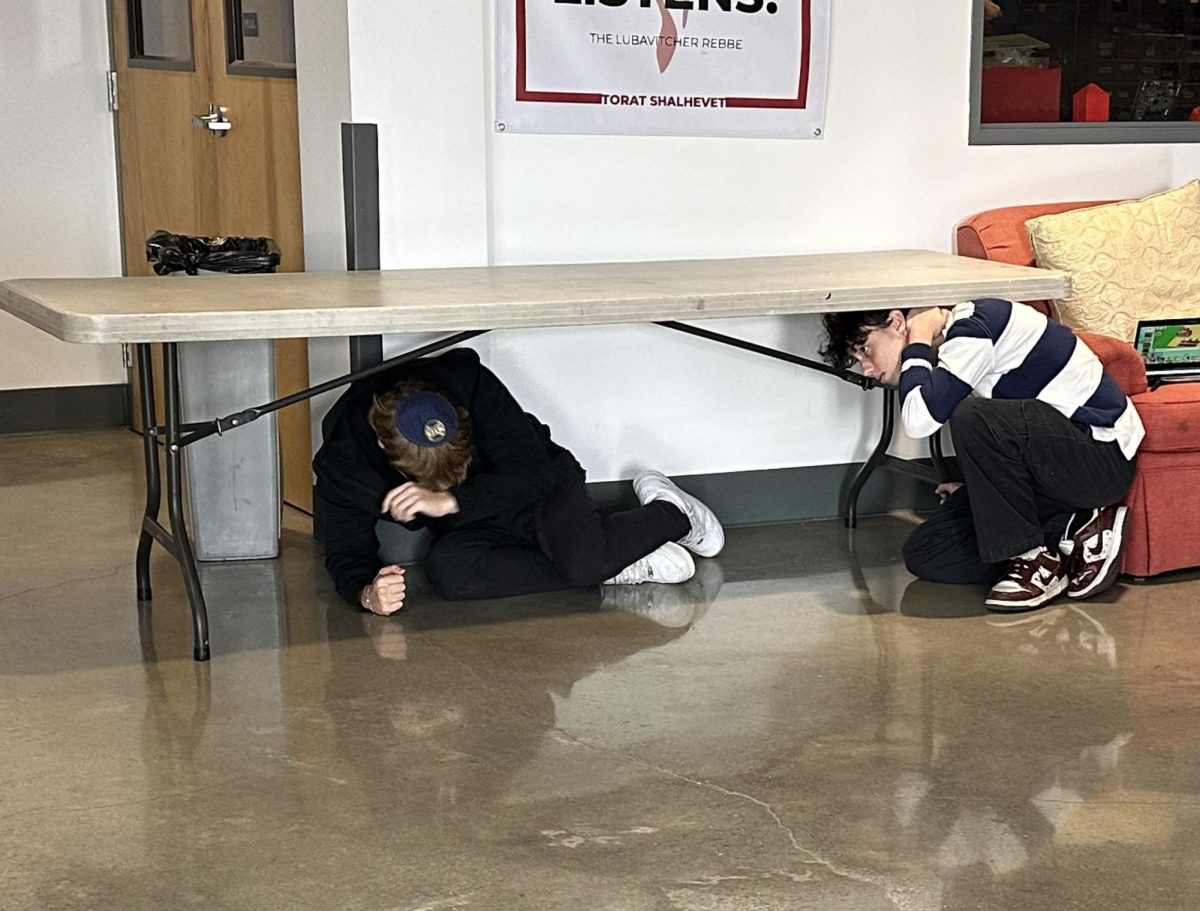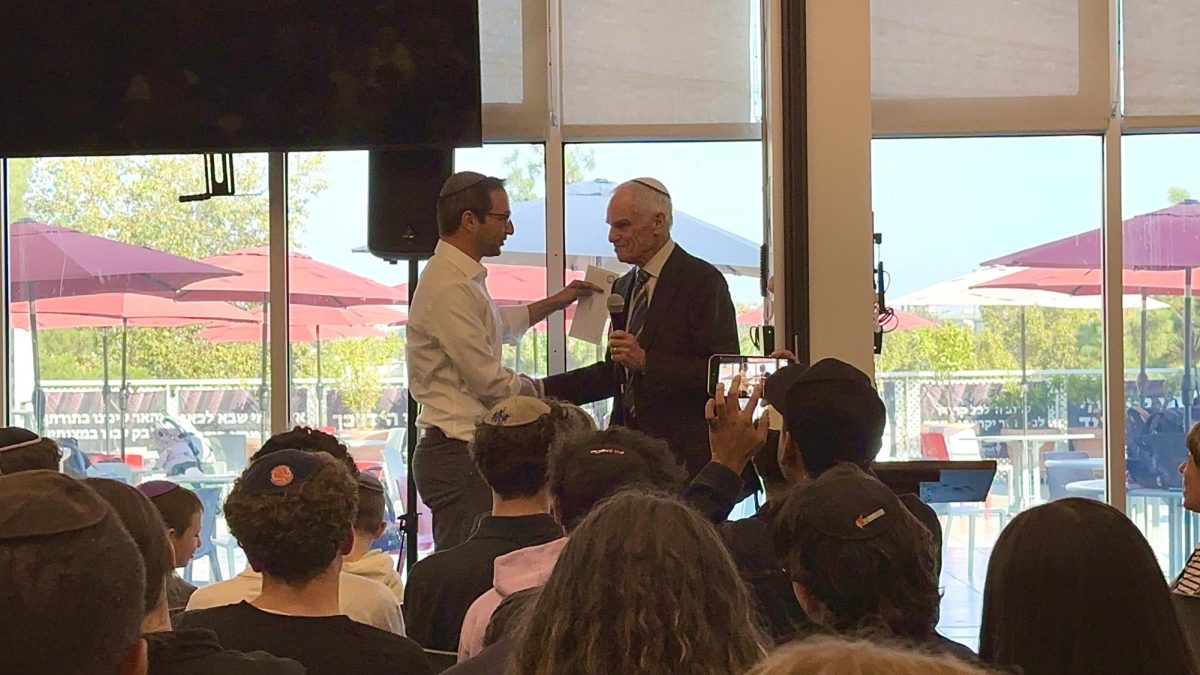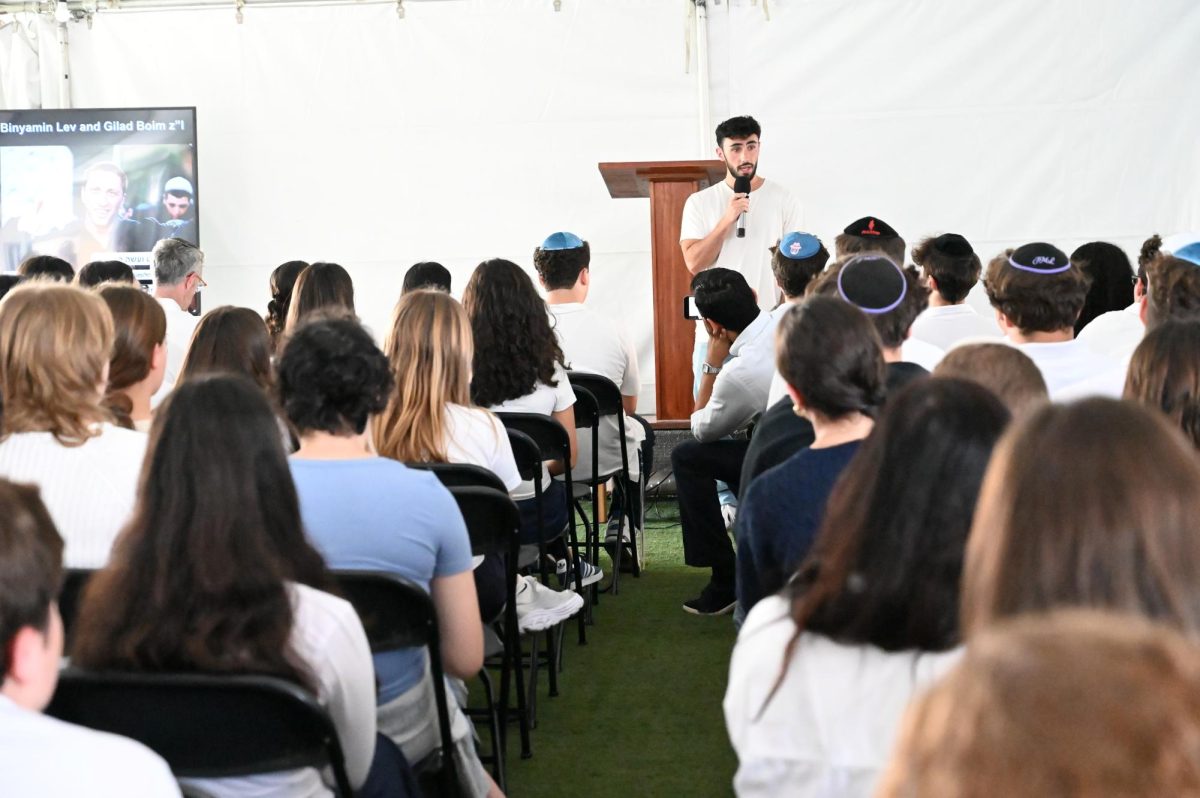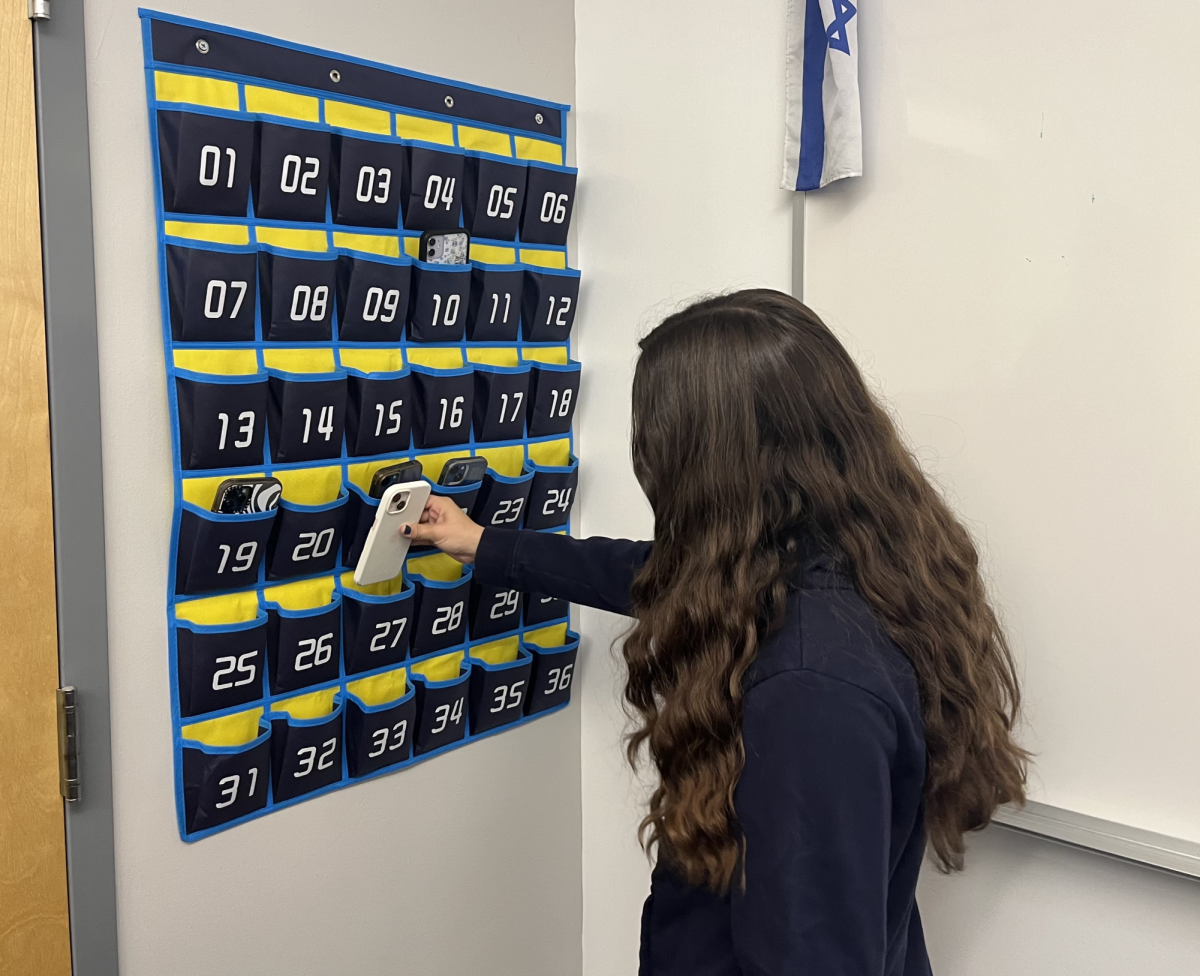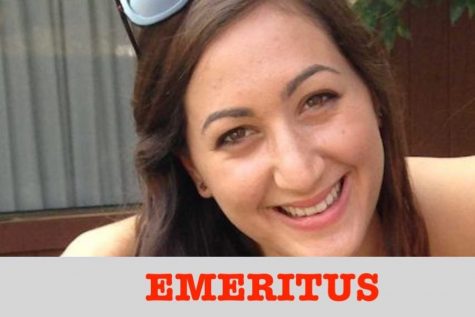Panel of experts says school should be different.
Imagine a crowd of teachers, students and parents finding out that more than two hours per night of homework does not improve academic performance for high schoolers.
This was the case at the Laemmle Theater in Beverly Hills Feb. 10, where the 250-seat auditorium was filled to capacity for Shalhevet’s screening of Race to Nowhere, a documentary about pressures faced by students. When the film was over, Dean of Students Roy Danovitch led a panel of experts and a question-and-answer period.
The documentary focuses on the pressures and workload faced by students, particularly as driven by the admissions process for college. Producer and director Vicki Abeles conceived of the film after noticing that her kids were coming home from school with hours of homework ahead of them, and suffering illness presumably because of stress.
Statistics were cited showing that although America’s schools are giving more and more homework in an effort to improve achievement, in reality homework does not improve learning at all in elementary school. One hour of homework increases learning in middle school, and in high school, two hours per night improves achievement.
But more than that had no effect at all, or could even reduce learning, the film said.
“I found it shocking that a school decided not to give any homework, and the students actually achieved higher scores than students who had hours of homework a night,” said freshman Hannah-Leeba Ellenhorn.
It was just one of many revelations made in the film, which has been shown in plenty of schools and has been featured in The New York Times.
A review in The New York Times described it as “a must-see movie in communities where the kindergarten-to-Harvard steeplechase is most competitive.”
That may have accounted for the heavy turnout. Thirty seats left for at-the-door purchases were quickly sold and the theater filled up.
People of all ages from the Shalhevet community — students, parents, teachers and alumni – were joined by guest from Crossroads School in Santa Monica. Crossroads had its own screening of the movie but couldn’t accommodate everyone who wanted to go, so they asked to join Shalhevet’s presentation.
Aside from homework, issues raised in the film included whether students are learning for the sake of learning or to do well on standardized exams, and whether competition for entrance to top colleges is causing students to work themselves sick and lose perspective.
One straight-A student described in the film committed suicide after earning her first B in math. Her mother thought that might have been why she did it.
But senior Eli Willis, representing Shalhevet students on the panel after the screening, said the scenes in the film did not resemble her experience at Shalhevet.
“I don’t think that the film described my experience,” Eli said. “But I can relate to some of the pressures that the students in the film were feeling.”
The documentary did not offer concrete solutions to the problems brought up in the film, but it encouraged people to start with the small things—making sure students are not too stressed, encouraging family time, and even experimenting with homework-free periods.
When the film was over, Mr. Danovitch introduced the panel. Sitting in professional director’s chairs were Director of College Counseling Dr. Steven Mercer; Dr. Paul Cummins, founder of Crossroads and New Roads schools; and Dr. Gil Graff, Executive Director of the Bureau of Jewish Education, along with Eli.
They addressed issues such as when schooling became all about grades as opposed to learning, and how to fix this problem.
Dr. Mercer, who had screened the movie a week earlier, said he had trouble coming to terms with the issues raised in the film.
“I had been thinking about whether I could be partly responsible for these things,” Dr. Mercer said. “I wanted to find someone to blame for these problems, but I couldn’t pinpoint just one person or institution. But it did occur to me that people in the field of college admission could be to blame.”
Then the floor was opened to questions from the audience. Questions were raised about how Jewish education and a dual curriculum can affect stress, Shalhevet’s role in this system, and alternative grading systems.
Dr. Cummins said there are plenty of schools that do not send out grades, but rather evaluations of the student, and how that can alleviate stress about grades.
“I was nervous to be on a panel with three doctors, but in the end I think the event went well,” said Eli Willis.
Mr. Danovitch said the goals of the screening had been met.
“We wanted to present this to the Shalhevet community because we know that everyone in the community has a future and a stake in the future of Jewish education,” Mr. Danovitch said.
“It is very important also to convene experts who can talk about the issues within the film, and discuss them in a way which allows us to make sense of them.”


